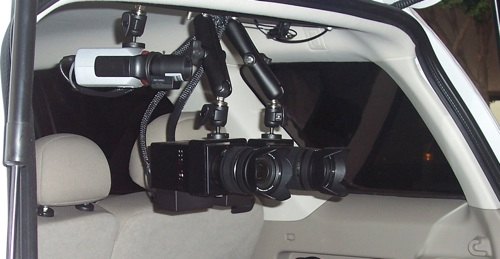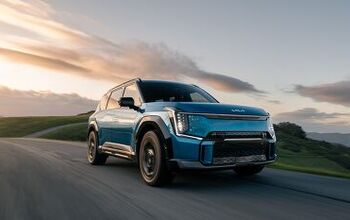Arizona Legislature Prepares to Defend Photo Radar
Despite a brewing public revolt over the issue of photo radar, the Arizona State Legislature may be circling the wagons in an effort to defend lucrative automated ticketing programs. The Senate Public Safety and Human Services Committee voted 4-2 on Wednesday to increase the pressure on motorists by adding points to the drivers’ licenses of anyone receiving a freeway camera ticket, instead of offering relief by banishing the machines from the highways, as some had expected. A statewide signature drive to ban photo ticketing continues to pressure lawmakers, but influential lobbyists in the statehouse have won the first battle.
- Wendy Briggs, American Insurance Association
- Lanny Hair, Independent Insurance Agents and Brokers of Arizona
- Don Hughes, American Family Insurance
- Don Isaacson, State Farm Insurance
- Ellen Poole, USAA Insurance
- Mike Williams, Arizona Highway Patrol Association
- Redflex Traffic Systems of Australia
Each time a motorist receives a license point, his insurance provider can raise his rates anywhere from $50 per year to $1000 or more, depending on his driving record and the severity of the offense. With hundreds of thousands of photo tickets being issued on Arizona freeways, the legislative change represents the potential for millions in extra revenue for the industry.
The original push to remove license points actually came from American Traffic Solutions (ATS), the company that lost on on a bid to operate the freeway ticketing program to its arch-rival, Redflex. When points are not added to licenses, drivers are less likely to contest the ticket. ATS CEO James Tuton, 48, understands the plight of drivers in a personal way as he has been a frequent recipient of traffic citations himself.
On Wednesday, Tuton was scheduled to be arraigned before McDowell Mountain Justice Court Judge Michael Reagan for a violation. Tuton will not be able to get out of this ticket by going to traffic school since he already attended a class in December to avoid the consequences of a citation issued by one of his own photo vans.
Observers inside the state capital offered several explanations for the apparent change of heart of some lawmakers. The most obvious is that facing a $3 billion budget deficit, legislators need the $100 million brought in by the freeway program to avoid having to make tough choices about cutting state spending or raising taxes.
The second is that $16.50 from each photo radar ticket goes into a fund paid to the personal campaign accounts of politicians. Most importantly, however, sources noted that some lawmakers want insurance companies to have more of a reason to pour millions into a political campaign to defeat the citizen’s ballot initiative that would shut down the cameras for good.
In addition to adding points to licenses, the legislation introduced by state Representative John Nelson (R-Glendale) was amended to make a number of minor changes to the way photo ticketing programs operate. Signs notifying of the presence of speed cameras would also have to indicate the speed limit. Speed traps would have to be placed more than 200 yards from a speed limit change.
The state Department of Public Safety would have to release a report every six months on the amount of revenue collected by the ticketing program. The proposal now faces a debate in the full Senate and House where it would have to be approved before being sent to the governor.
More by The Newspaper
Latest Car Reviews
Read moreLatest Product Reviews
Read moreRecent Comments
- Lou_BC Well, I'd be impressed if this was in a ZR2. LOL
- Lou_BC This is my shocked face 😲 Hope formatting doesn't fook this up LOL
- Lou_BC Junior? Would that be a Beta Romeo?
- Lou_BC Gotta fix that formatting problem. What a pile of bullsh!t. Are longer posts costing TTAC money? FOOK
- Lou_BC 1.Honda: 6,334,825 vehicles potentially affected2.Ford: 6,152,6143.Kia America: 3,110,4474.Chrysler: 2,732,3985.General Motors: 2,021,0336.Nissan North America: 1,804,4437.Mercedes-Benz USA: 478,1738.Volkswagen Group of America: 453,7639.BMW of North America: 340,24910.Daimler Trucks North America: 261,959


































Comments
Join the conversation
We must unite in this and vote out any money grubbing legislator who votes for this. How much is your legislator getting. (Just from a few of my files) From camerafraud.com This is Arizona="Money from each photo enforcement ticket breaks down as follows: $16.50 to statewide public campaign financing, $13.48 to the Department of Public Safety, $25.17 to the Supreme Court of Arizona’s Administrative Office of the Courts, $29.70 to Redflex (the private photo enforcement company) and $96.65 to the State of Arizona’s general fund". http://www.thenewspaper.com/news/27/2712.asp , Arizona "a ten percent surcharge was imposed on all traffic tickets to create the "Citizens Clean Election Fund." The fund allows politicians to avoid tedious fundraising efforts. After raising just $5 each from 220 people in a district, candidates for public office qualify for public financing money to match private expenditures. In effect, these lawmakers collect $16.50 for their campaigns each time a photo radar ticket is issued on an Arizona freeway. This adds up to big money. In 2008, traffic tickets generated $10,095,771 in revenue for the clean elections fund. Out of this amount, $7,710,739 million was disbursed to lawmakers and candidates during the primary and general elections -- an average of $72,063 each. In just the past four months, the new freeway speed camera program has already added another $3.3 million to the total amount collected for lawmakers. Over the past four election cycles, Arizona politicians collected a total of $36,265,795 in campaign cash from the tax on speeding tickets.
OH, don't forget the maybe in extra millions that insurance companies, and employers will have to pay to get a copy of the information on you. Your legislators care crap about you, that is now a proven fact.